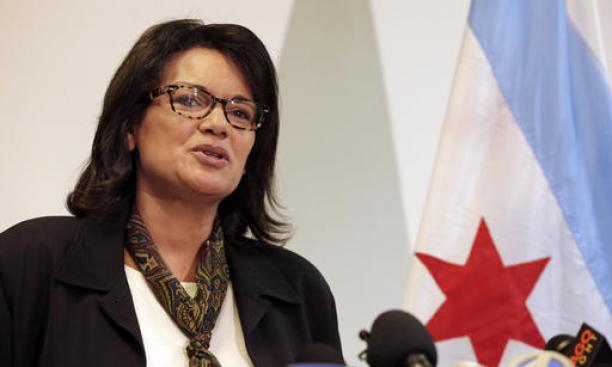

In Chicago, a city plagued by both an escalating murder rate and public distrust in the police, heading the Independent Police Review Authority (IPRA), which investigates allegations of police abuse, seems like an unenviable job. But Sharon Fairley ’82, the IPRA’s chief administrator since December, has been leading a charge for increased transparency and accountability.
Fairley oversaw updates to the IPRA website that allow citizens to more easily search the database of alleged incidents. Earlier this month, the Chicago police released video and audio evidence from dozens of police shootings and other incidents under investigation by the IPRA. The Chicago Tribune called it “a watershed moment for a city that fought for decades to keep videos in excessive force cases hidden from the public.” The release was the result of a new IPRA policy, approved by Mayor Rahm Emanuel in February, that requires the city to release video, audio, and written police reports to the public within 60 days of officer-involved shootings and other incidents that result in “death or great bodily harm.”
The change came more than six months after Chicago officials released a video that showed a police officer shooting 17-year-old Laquan McDonald in October 2014. Prosecutors filed a first-degree murder charge against the officer, but the 13-month lag in the release of evidence sparked anger and protests in the city.
“These past few months, as the city has struggled with so many questions about policing and about police accountability, it has been clear that we all agree that there’s a lack of trust and that increased transparency is essential to rebuilding that trust,” Fairley said at a June 3 news conference in which she called the video release an important “first step.”
The next steps for the IPRA remain uncertain. Emanuel, who appointed Fairley to her post, has said that he would like to replace the IPRA with a new Community Safety Oversight Board “that has more independence and more resources to do its work.” Fairley, a former federal prosecutor and lecturer at the University of Chicago Law School, has said that she supports the proposal.